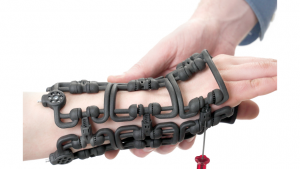It filters about 40 litres of water per day and its sleek design is brought to life with recycled plastics from toilet seat production. The KOHLER Clarity water purification system was developed in collaboration with World Vision, iDE, Water Mission, and others to bring drinking water to developing nations around the world.
“Our goal with KOHLER Clarity is to provide a filter extremely efficient at creating safe drinking water that also becomes a fixture of convenience and dignity in a home,” said Mike Radloff, Senior Project Manager-Water Technologies.
It’s estimated that 1.8 billion people lack access to safe, reliable drinking water around the world. To solve this pressing issue, a number of organisations, companies and NGOs have taken to finding sustainable solutions in the form of water filtration systems.
The KOHLER clarity, ceramic filtration system works on gravity alone, no electricity or water infrastructure is needed. According to the company, the filter holds 11 litres of dirty water that flows into a 12-litre reservoir, where the clean water is stored to avoid recontamination.
Touted as one of the best in the world, the system removes over 99 per cent of bacteria and protozoa. Additionally, studies show that safe drinking water and storage, such as filtering, reduces the risk of certain water-borne illnesses by 45 per cent.
Clarity is able to meet the water needs of a typical family while it costs less than 1 cent per person to operate. It has also been designed for convenience. Clarity’s cartridge can be replaced after one year, removing the need to replace the entire system.
Its lid, base and nut contain recycled plastics from toilet seat production. The corrugated box, designed to minimise non-biodegradable packing material, is shaped to optimally fill a shipping container to reduce shipping costs and can be worn on the back for easy transport.
The system is currently being trialled in Africa and India.







